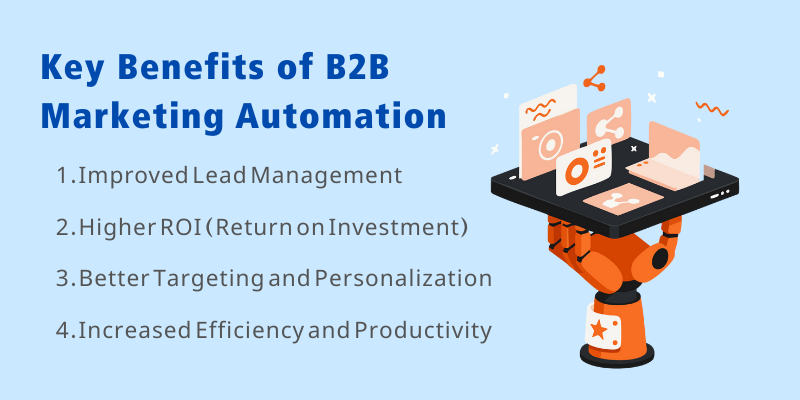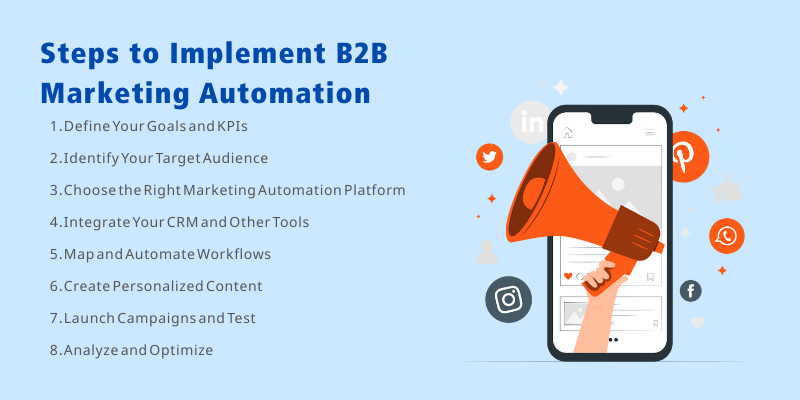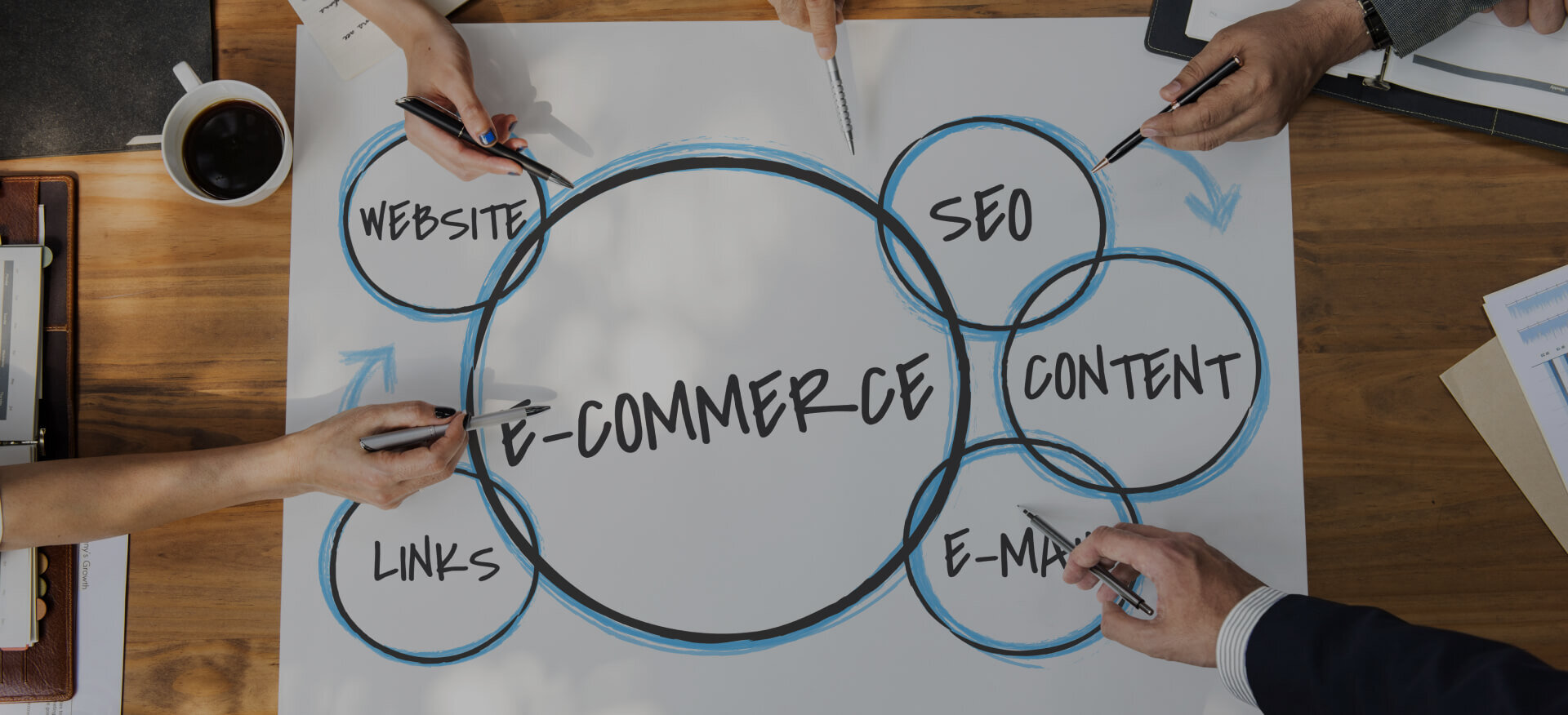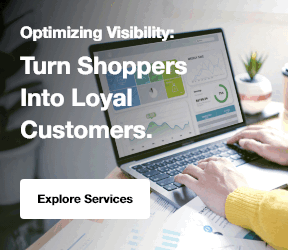B2B marketing automation is transforming the way businesses connect, engage, and convert leads in today’s competitive digital landscape.
It involves using advanced software and strategies to automate marketing tasks, streamline workflows, and deliver personalized experiences to prospects and customers.
For modern businesses, automation isn’t just a luxury it’s a necessity to stay efficient, consistent, and scalable.
By implementing B2B marketing automation, companies can simplify complex processes like lead generation, lead nurturing, and sales enablement. Instead of manually tracking every prospect, automation tools allow teams to create targeted campaigns that move leads smoothly through the sales funnel.
This results in higher productivity, reduced human error, and stronger alignment between marketing and sales teams.
It plays an important role in nurturing relationships by delivering the right message at the right time, ensuring that potential clients feel valued and understood.
From automated email campaigns and CRM integration to behavior tracking and analytics, businesses gain valuable insights that help them make data-driven decisions.
As buyer journeys become more complex, B2B marketing automation empowers companies to focus on strategy and creativity while technology handles repetitive tasks. Ultimately, it drives growth, improves ROI, and provides a competitive edge in an ever-evolving marketplace.
What is B2B Marketing Automation?
B2B marketing automation is the process of using technology and software tools to streamline, automate, and measure marketing tasks specifically designed for business-to-business (B2B) transactions.
Unlike general marketing automation, which often targets individual consumers, B2B marketing automation focuses on building and nurturing long-term relationships between businesses.
It is especially valuable in industries where the sales cycle is complex, involving multiple stakeholders, higher-value deals, and more decision-making steps.

For example, a luxury branding agency can use B2B marketing automation to ensure consistent messaging to high-end clientele while managing intricate client needs.
In this competitive environment, utilizing B2B marketing services is a necessity to stay ahead.
The main goal of B2B marketing automation is to simplify processes such as lead generation, lead nurturing, customer segmentation, and performance tracking.
For instance, businesses often consider what is B2B lead generation as a critical process, as it involves capturing and engaging leads that are most likely to convert into long-term customers.
It allows marketing teams to create highly personalized campaigns that engage prospects at every stage of the buyer’s journey.
For instance, automated email sequences can educate potential clients about a product, while CRM integrations can ensure seamless handoffs between marketing and sales teams.
What sets B2B marketing automation apart is its ability to manage multi-step, long-term sales cycles. Unlike B2C automation, which may focus on one-time purchases or quick conversions,
B2B requires ongoing engagement and trust-building.
With features like lead scoring, account-based marketing (ABM), and analytics, businesses can focus on high-quality leads, improve collaboration, and ultimately close deals faster while maintaining strong client relationships.
Explore Our B2B Website Development Services!
4 Key Benefits of B2B Marketing Automation
B2B marketing automation offers a wide range of benefits that help businesses streamline their marketing processes, improve collaboration between teams, and drive sustainable growth.
By automating repetitive tasks, companies can focus on strategy, creativity, and building relationships with high-value clients.

For instance, through B2B web development services, companies can enhance their websites to support automated lead generation and improve user experience, driving higher conversions.
For instance, an oil and gas marketing agency can leverage automation to target specific market segments and drive highly personalized campaigns with improved results.
Here are some of the most impactful benefits:
1. Improved Lead Management
With automation, businesses can capture, track, and nurture leads more effectively. Features like lead scoring and segmentation ensure that only qualified prospects are passed on to the sales team. This improves conversion rates and helps sales teams focus on the most promising opportunities.
2. Higher ROI (Return on Investment)
B2B marketing automation maximizes every marketing dollar spent by reducing manual effort and optimizing campaigns. Through performance tracking and analytics, businesses can identify what’s working and reallocate resources to high-performing channels, ensuring better ROI.
3. Better Targeting and Personalization
Automation enables precise audience targeting with tailored messaging. Businesses can deliver the right content at the right time based on buyer behavior, industry, and engagement level, resulting in stronger relationships and higher engagement rates.
4. Increased Efficiency and Productivity
By automating repetitive tasks like email campaigns, follow-ups, and reporting, marketing teams save valuable time. This allows them to focus on strategic initiatives, innovation, and scaling marketing efforts without increasing workload.
Explore Our B2B Marketing Services!
5 Essential Features to Look For in B2B Marketing Automation
Choosing the right B2B marketing automation platform is critical for ensuring long-term success and efficiency in your marketing strategy.
What is automation? In the context of B2B marketing, it refers to using tools and systems to handle repetitive tasks, such as email follow-ups and lead nurturing, freeing up teams to focus on high-level strategy.
With the right features, businesses can streamline their marketing operations, align sales and marketing teams, and create seamless experiences for potential customers.
For instance, a real estate marketing agency may prioritize multi-channel campaigns to engage prospective buyers across various touchpoints and increase conversions.
Below are the key features you should look for, explained in detail to help you make an informed decision.
1. Email Automation
Email automation is the cornerstone of B2B marketing automation.
It allows businesses to send personalized, targeted, and timely emails to prospects and clients based on their actions, interests, and engagement level.
For instance, when a potential lead downloads an eBook or signs up for a webinar, the system can automatically trigger a customized email sequence designed to nurture that lead.
This helps build trust and guide them through the sales funnel without requiring manual follow-ups.
Key capabilities include:
- Drip campaigns to gradually educate and nurture leads
- Behavior-triggered emails, such as reminders or thank-you notes.
- Dynamic content that adjusts messaging based on the recipient’s profile or stage in the buyer’s journey.
Explore Our Email Marketing Services!
2. CRM Integration
A strong Customer Relationship Management i.e. CRM integration is essential for aligning marketing and sales teams.
It ensures that every interaction with a lead is recorded and visible in one central location, providing both teams with up-to-date information.
Benefits of CRM integration include:
- Real-time syncing of data, ensuring no leads are lost or duplicated.
- Improved pipeline visibility for tracking leads through each stage of the sales process.
- Seamless handoffs between marketing and sales, preventing miscommunication.
- Insights into customer behavior and purchase history to personalize marketing campaigns.
3. Analytics and Reporting
Data is at the heart of every successful marketing strategy. Comprehensive analytics and reporting tools give you a clear picture of your marketing performance and help you make data-driven decisions.
With this feature, businesses can:
- Monitor key performance metrics like email open rates, click-through rates, lead conversion rates, and ROI.
- Identify which campaigns are most effective and where improvements are needed.
- Understand customer behavior, buying patterns, and content preferences.
- Create custom reports to share with stakeholders and optimize future strategies.
4. Lead Scoring
Lead scoring is a game-changing feature for businesses dealing with a high volume of leads. It assigns numerical values to prospects based on their engagement level, actions taken, and fit with your ideal customer profile.
Benefits of lead scoring include:
- Efficient resource allocation, ensuring efforts are focused on the most promising leads.
- Shorter sales cycles by identifying ready-to-buy prospects.
- Improved collaboration between marketing and sales through a shared understanding of lead quality.
5. Multi-Channel Campaign Management
Modern B2B buyers interact with brands across multiple channels, including email, social media, websites, webinars, and paid ads.
A powerful automation tool should support multi-channel campaign management to create a consistent and seamless buyer experience.
This feature allows businesses to:
- Run integrated campaigns that deliver consistent messages across platforms.
- Track interactions across different channels to build a unified view of customer behavior.
- Increase engagement by reaching prospects on their preferred platforms.
- Automate retargeting campaigns to re-engage leads who dropped off at earlier stages.
Why These Features Matter?
When combined, these features create a powerful ecosystem for managing the entire B2B marketing journey from attracting leads to nurturing relationships and driving conversions.
- Email automation ensures consistent communication.
- CRM integration creates transparency between teams.
- Analytics provides insights for optimization.
- Lead scoring boosts efficiency and sales focus.
- Multi-channel management delivers a cohesive, personalized experience for prospects.
4 Steps to Implement B2B Marketing Automation
It involve defining clear goals, selecting the right platform, setting up workflows, and continuously measuring performance.

1. Define Goals
Start by setting clear, measurable goals tied to revenue and growth.
- Map funnel stages like Visitor → Lead → MQL → SQL → Closed-Won.
- Create 3–5 SMART goals such as increasing MQL to SQL conversion by 30% in 90 days.
- Align with sales on MQL/SQL definitions and response-time SLAs.
2. Choose the Right Platform
Select a platform that integrates smoothly with your systems and supports long-term scalability.
- Ensure CRM integration for seamless data syncing.
- Look for advanced features like lead scoring, multi-channel campaigns, and analytics.
- Verify compliance with data privacy laws and evaluate total cost of ownership (TCO).
3. Set Up Workflows
Build automated workflows to nurture leads and streamline sales processes
- Establish a clean data foundation with standardized fields and consent tracking.
- Use lead scoring to prioritize high-quality prospects.
- Create core nurturing campaigns: onboarding, education, product interest, and re-engagement.
- Test every process before going live to avoid errors.
4. Measure Performance
Continuously track and optimize your campaigns using analytics.
- Monitor funnel metrics like leads, MQLs, SQLs, and conversions.
- Calculate ROI, CPL, and opportunity velocity for better decision-making.
- Use A/B testing and monthly reviews to refine strategies and improve results over time.
6 Best Practices for Success in B2B Marketing Automation
Implementing B2B marketing automation is just the first step; achieving long-term success requires smart strategies and continuous improvement.
Here are some actionable tips to help you maximize your automation results:
1. Personalize Every Interaction
Generic, one-size-fits-all messaging no longer works in B2B marketing.
- Use dynamic content to tailor emails, landing pages, and ads to each lead’s behavior, industry, and stage in the buyer journey.
- Address pain points specific to decision-makers to build stronger relationships and trust.
2. Segment Your Audience Effectively
Not all leads are equal, and segmentation ensures the right message reaches the right audience.
- Group leads by factors like industry, company size, role, location, or buying intent.
- Create unique nurture tracks for each segment to deliver more relevant content and improve conversion rates.
- Use progressive profiling to gather data gradually without overwhelming the lead.
3. Align Marketing and Sales Teams
Marketing and sales alignment is essential for smooth automation and faster deal closures.
- Share lead scoring criteria, lifecycle stages, and responsibilities clearly.
- Schedule regular meetings to review lead quality, campaign performance, and improvement opportunities.
- Implement shared dashboards to maintain visibility into the sales pipeline.
Explore Our Digital Marketing Services!
4. Continuously Optimize Campaigns
Automation isn’t a set-and-forget strategy.
- A/B testing of subject lines, CTAs, workflows, and segmentation rules regularly.
- Track engagement data to identify underperforming campaigns and make data-driven adjustments.
- Update content frequently to stay relevant in changing markets.
5. Ensure Data Quality and Compliance
Accurate, compliant data keeps automation running smoothly and builds trust.
- Regularly clean your database by removing duplicates, inactive leads, and incorrect entries.
- Follow privacy laws like GDPR and CCPA by collecting proper consent and giving leads control over their preferences.
- Use validation rules to maintain consistent, reliable data for reporting and personalization.
6. Start Small and Scale Gradually
Trying to automate everything at once can cause confusion and inefficiency.
- Begin with a simple nurture workflow, like a welcome or onboarding series.
- Once the process is stable and performing well, expand into more complex workflows and multi-channel campaigns.
Final Thoughts
B2B marketing automation is no longer a luxury it’s a necessity for companies looking to thrive in today’s competitive marketplace. By automating repetitive tasks, aligning marketing and sales teams, and delivering personalized experiences, businesses can streamline processes, generate higher-quality leads, and close deals faster. The key to success lies in starting small but thinking strategically. Begin with simple workflows like lead nurturing or onboarding campaigns, then gradually expand into more advanced, multi-channel strategies.
This approach reduces complexity, encourages team adoption, and ensures sustainable growth. When implemented thoughtfully, B2B marketing automation becomes a powerful engine for scaling your business. It enables teams to focus on building relationships, driving revenue, and creating long-term value while technology takes care of the heavy lifting. Now is the time to embrace automation and position your company for lasting success.









